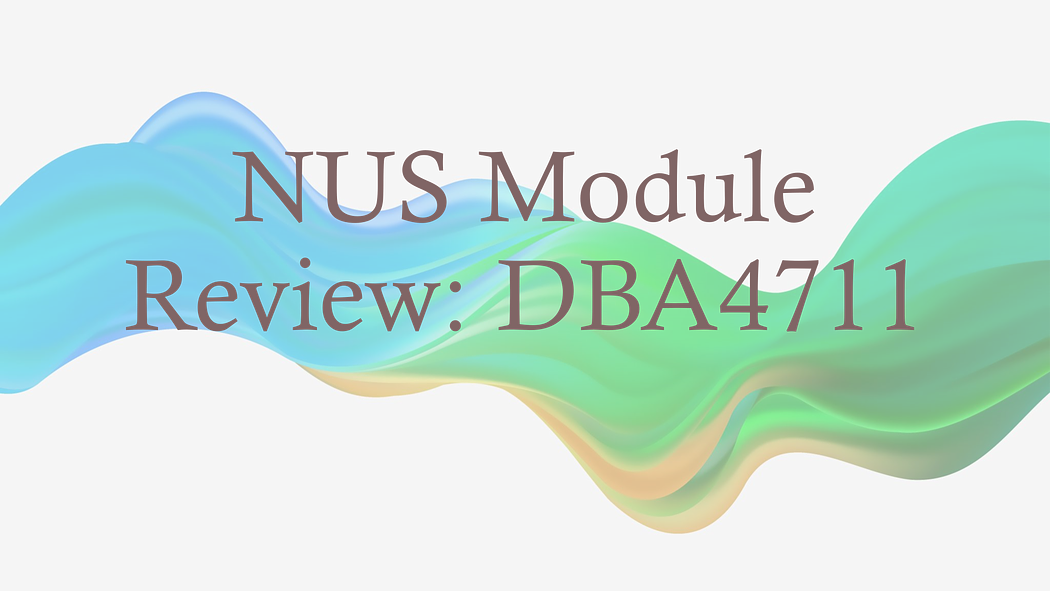
Module: DBA4711 Applied Analytics
Semester taken: SEM2 AY2021/2022
Lecturer / Tutor: Chaithanya Bandi
Module Synopsis (taken from nusmods.com)
Big data and analytics, which have climbed to the top of the corporate agenda, promise to transform the way many companies operate, delivering performance improvements not seen since the redesign of core processes in the 1990s. In this module, we study how analytics is used to transform businesses and industries, using examples and case studies in e-commerce, healthcare, social media, Fintech, pharma, and beyond. Through these examples, students learn the use of predictive and prescriptive analytics methods such as linear regression, logistic regression, classification trees, random forests, social network analysis, time series modelling, clustering, optimization, and machine learning.
Main Learning Objectives
- Understand and apply predictive analytical methods (what will happen?)
- Understand and apply prescriptive analytical methods (what should we do?)
Course Deliverables / Graded Components
(apologies, I have lost the info on the weightage of each component)
- Group Project
- 3 Homework / Group Assignments
- Midterm
Personal Review
I took this module because I wanted to equip myself with useful (& more advanced) data analytics methods.
Overall, I think the content of this module largely overlapped with that of DBA3803, but covered more concepts such as social media analysis and time series modelling. This was a blessing for me because I found that Prof Chaithanya Bandi could explain the advanced techniques clearly, in a simple to understand manner. Many real life examples were also shared during class too.
Beyond introducing a myriad of techniques and models available for data analysis, students were also challenged to critically evaluate models and compare between models to decide which was the best for the case at hand. There was also an emphasis on understanding performance metrics, because it is insufficient to simply know how to run the model, but not be able to comprehend the results.
The module used R to apply techniques learnt and sample codes were given for respective lessons. So, students could refer to the sample codes for the homework assignments as well. As such, it was not a hard prerequisite to know how to do R programming. However, if you would like to strengthen your R programming skills, you may consider taking DBA3702 first.
Ending Note
If you are keen on a data analyst career path, I would highly recommend this module! However, do note that it is a technical module and requires proper understanding of how models work too.
Read my full list of module reviews!
I also sell my module notes here, feel free to browse!
Thank you for reading!